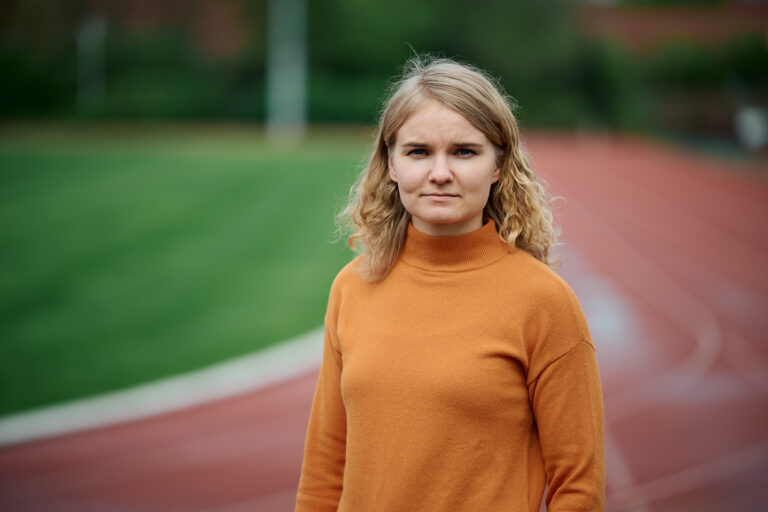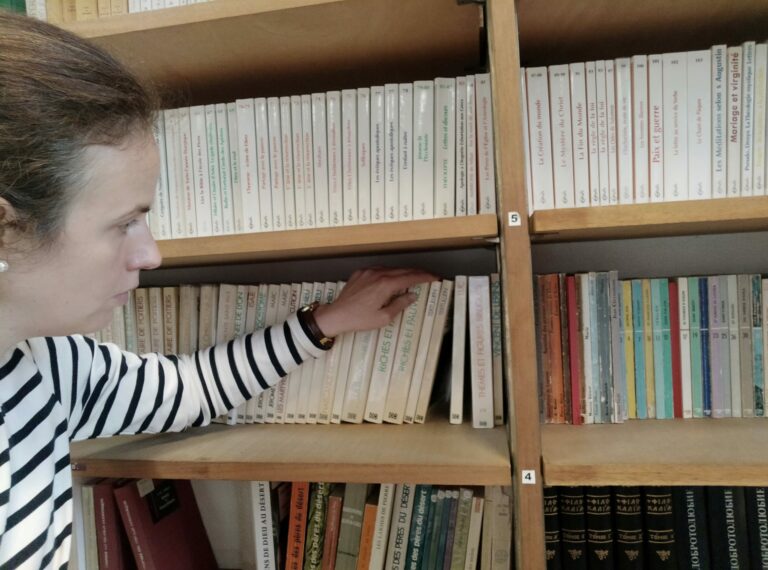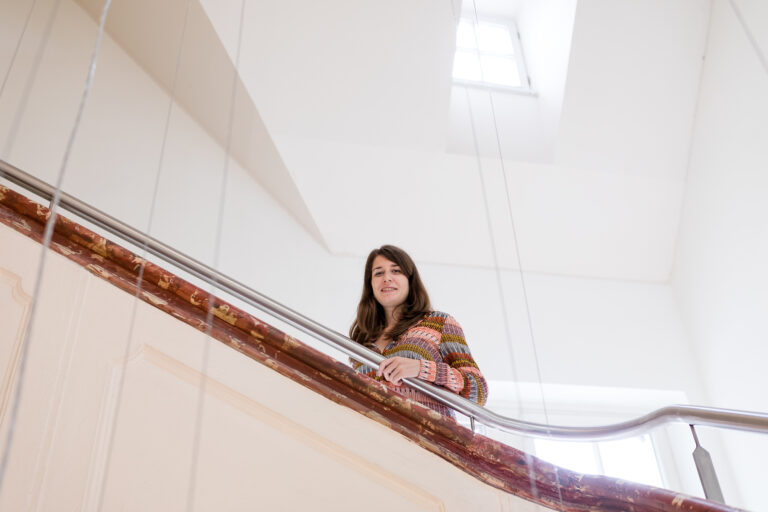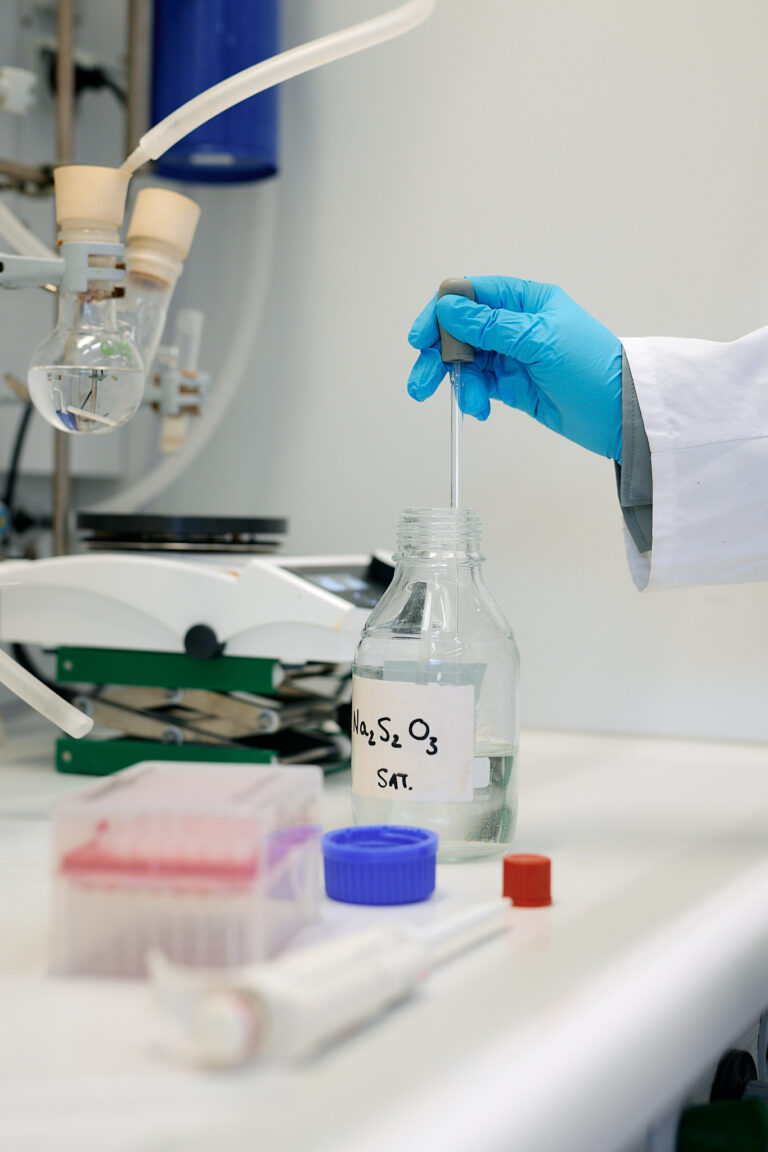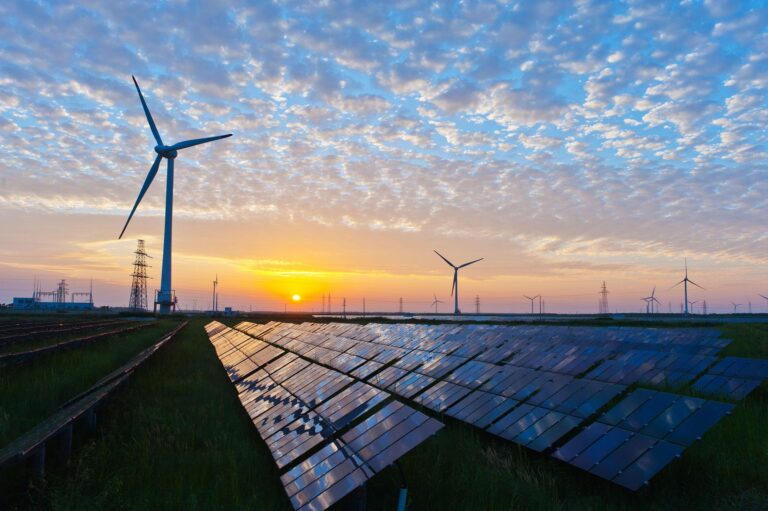
An Interview with Biochemist Dr. Aleksandra Maršavelski – On ‘Tiny Molecular Scissors’ and Not Taking Yourself Too Seriously
In the series “33 questions” we introduce, in no particular order, our WiRe Fellows who are currently working on a research project here at the University of Münster. Why 33? Well, if we think of the rush hour of life, it is kind of the age that lies in the middle. And we also like the number😉.
In today’s episode we are speaking with Aleksandra Maršavelski, a biochemist and passionate lover of proteins.

1. What motivated you to work in the field of Protein Biochemistry?
While I was in high school, I attended the Petnica Science Center (PSC), which is an independent nonprofit organisation for extracurricular science education. I was enrolled in the PSC’s chemistry program and that was the first time I saw the structure of hemoglobin, a protein that binds, transports and releases the oxygen. To my biggest surprise the structure was not static but dynamic, and I was utterly impressed by what I saw. I was puzzled by the question how it is possible for the same molecule to do two opposite things, bind and release oxygen. And this is how it started. I was 16 years old. From that day I knew that protein biochemistry would be my profession and field of work.
2. Describe your daily work in three words.
Read, imagine, and perform.
3. Describe your research topic in three words.
Enzyme activity optimisation.
4. A good protein biochemist needs…?
A good protein biochemist needs a grit mindset, critical thinking, work ethic, positive attitude, ability to help others and receive help from others.
5. What is the best experience you have had as a scientist / researcher?
My best experiences come from interactions with other researchers and from visiting groups in different countries. Being a WiRe Fellow is also one of my best experiences so far. I am happy that I got the opportunity to learn new methodologies and acquire new skills in a new environment by working with kind, smart and talented researchers.
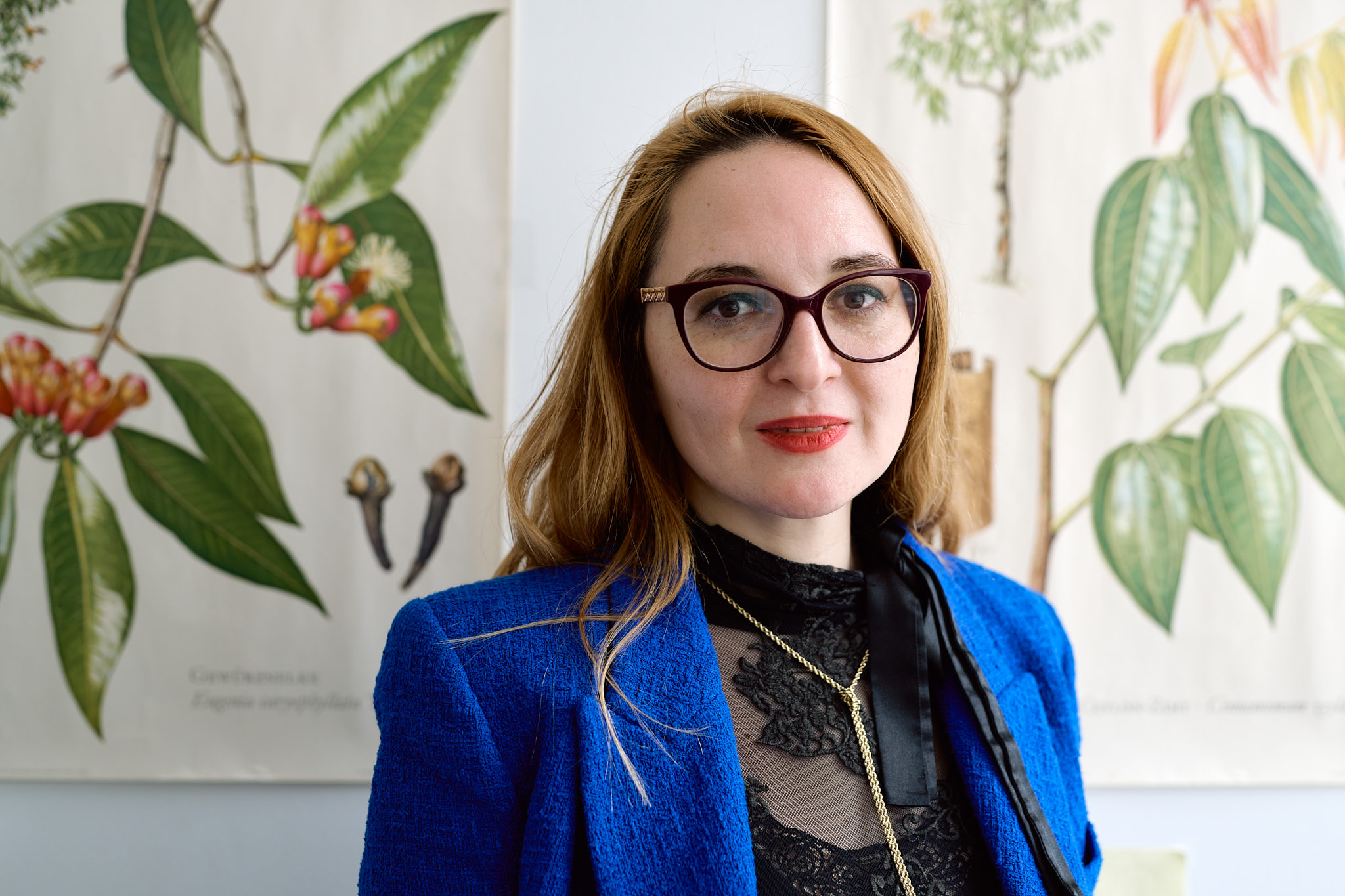
6. What was your biggest research disaster? What did you learn out of it?
Fortunately, I haven’t had disastrous experiences in research. I had difficult moments, but it is already known that the best comes from them.
Through these difficult moments, I overcome the fear of uncertainty. I realised that accepting the fact that everything is not in my hands does not mean giving up, but rather letting go. And letting go is the starting point for new activities.
7. What keeps you motivated in your work day in and day out?
The fact that I stopped taking myself so seriously. This doesn’t mean that I lack self-respect or that I don’t care about my work and professional ethics. I am referring to loosening up on myself, ensuring space for play, imagination, exploration, and constant change.
8. Which (historical) important scientist / researcher would you like to have dinner with? What would you ask?
If I had an opportunity to have such a dinner, I would organize a dinner party that involves carefully selected guests gathered around a common theme, to make the evening memorable. A common theme would be science and art and I would invite Rita Levi-Montalcini, Alexander Borodin and Isaac Asimov. All of them are scientists but also artists. Rita Levi-Montalcini was a neurobiologist known for the discovery of nerve growth factor and a Nobel Prize laureate. She channeled her creative and artistic nature by illustrating by hand her research results, and through clothes that she designed for herself. Alexander Borodin was a chemist, co-credited for the aldol reaction which is a way of forming carbon-carbon bonds. He also was the person who opened a program for women to study at the Medical and Surgical Academy, making formal medical training possible for women. His music wasn’t too bad, either. J Isaac Asimov was a professor of biochemistry at Boston University and a writer of iconic science fiction books.
What would I ask? I would let the evening take its spontaneous course.
9. What is your favourite research discipline other than your own?
Social psychology and humanistic philosophy.
10. What do you consider the greatest achievement in the history of science / research / your field?
Determination of the structures of biological macromolecules. Discoveries of different techniques that have allowed us to see how these molecules are assembled, how they function, and how they interact with other molecules.

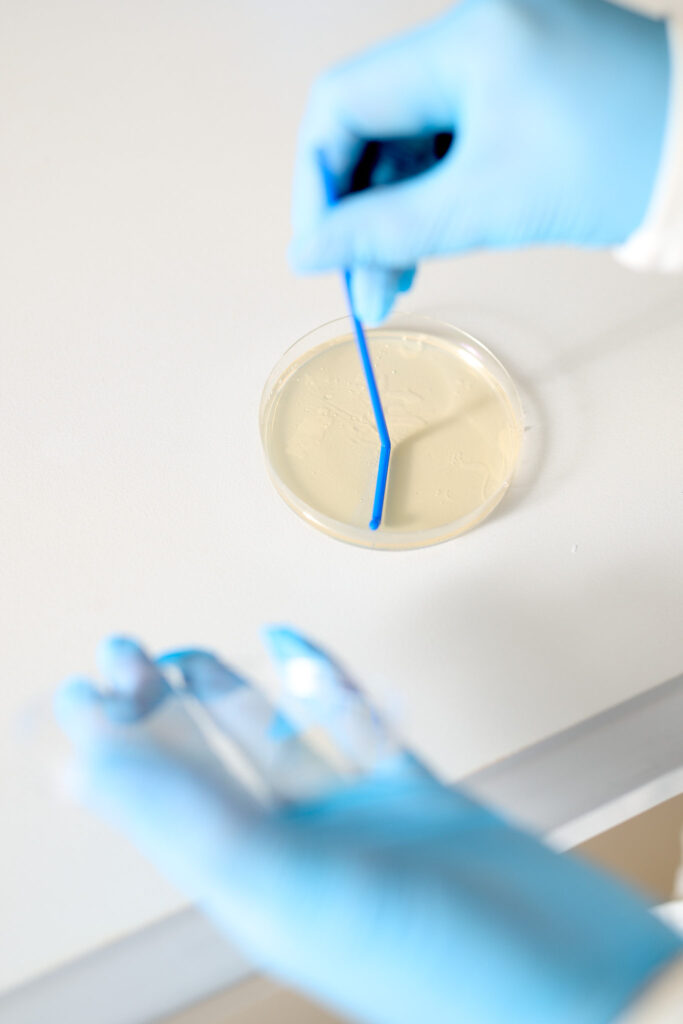
11. Which experience in the world of science disappointed you most?
In general, the system of academic publishing and high publication fees/article processing charges is disappointing as well as too many postdocs and PhDs without proper and adequate career paths and opportunities. Last but not least, not such a rare occurrence of poor supervisors and bullying bosses.
12. How did you survive your PhD time, and what advice and tips do you have for future PhD students?
The events that I had to survive were not related to either my research or results, but to things that I had no influence or contribution to. However, I survived with help and support from senior colleagues, professors and of course my family.
Advice and tips? In short, to be patient, kind and listen to your gut feeling.
13. What direct or indirect relevance does your research have for society?
The main goal is to establish an iterative approach to optimize enzyme activity with a detailed understanding of universal properties that will be available to the scientific community to effectively solve similar problems.
Globally, improved and optimised enzymes will contribute to the successful and sustainable degradation of bioplastic waste. Ideally, degradation process should result in monomeric units that can be reused for a new cycle of bioplastic synthesis, creating a circular economy.
In short, the impact is through sustainable waste reduction and reuse of materials.
14. How did you imagine the life of a scientist / researcher when you were a high school student? Is it actually different? In what way?
For me, being a scientist meant and means being completely immersed in the work that interests you the most. The difference is in a lot of non-scientific administrative work that brings you back to reality.
15. What do you like most about the “lifestyle” of a scientist / researcher? And what least of it?
I like the fact that science is borderless, and scientists are welcoming. For example, I was in New Haven, Connecticut, USA for three weeks in December 2011/January 2012. At the time, I had just finished my master’s degree in biochemistry. I took the opportunity to write to Professor Paško Rakić and Professor Nenad Šestan, both from the Yale School of Medicine and both well-known neuroscientists, and asked if it was possible to visit their laboratories. I got a positive response and went to see what the best place in the world to do neuroscience looks like. Later, when the New York Times, the BBC news and the rest of the world’s press wrote about the extraordinary research that reported the revival of the brain functions of pigs after death, I was so happy because I was there, I saw where the experiments took place, and I met these extraordinary scientists and their teams.
What I like the least of it are underpaid temporary positions. If someone is preoccupied with existential concerns on a daily basis, instead with thoughts about how to do research, then we can no longer talk about “lifestyle” of a scientist.
I also don’t like modus operandi “publish or perish”.
16. Do you think your career would have evolved differently if you were a man?
I must admit that I have never thought about it.
17. Where do you see yourself in 10 years?
Enjoying life while doing research and being a researcher, unburdened from hyper-productivity. Enjoying family life.

18. If you were the research minister of Germany, what would you do to improve the situation of women in science?
The priority is to actively deal with the problem of sexual and gender-based harassment of female scientists. Zero tolerance for misogynist, sexist, bullying, and discriminatory behavior. The practice of “putting up with it, with good humor if you can” should not be an option.
Improvement through increasing the proportion of women in scientific leadership positions and decision-making bodies.
Reliable childcare available in conveniently located nurseries close to universities and institutes.
More postdoc fellowships like the WiRe fellowship.
19. If you had a daughter, what would you advise her not to do?
Don’t compare yourself to others. Compare yourself to yesterday’s version of yourself.
20. How would you explain your research area and topic to a child?
I’m interested in the tiny molecular scissors that cleave plastic waste to keep our environment clean.
21. What is the biggest challenge for you when it comes to balancing family and career? How do you master this / these challenge(s)?
At the moment the biggest challenge for me is spending more time with my son. Sometimes I feel that I am not present enough. My family helps me balance life and career commitments. In my case, it’s the teamwork that leads to success in combining family life with career obligations.
22. How often do you as a friend / partner / mother / daughter feel guilty when you have to meet a deadline – again?
I wouldn’t call it guilt. There are certain deadlines or opportunities that you can’t miss in your profession.
23. How did you imagine your future as a child? What profession did you want to pursue?
I wanted to be a professor. It was also my favorite game while I was a child; I would put on my mother’s heels and teach the imaginary students. That is also how I was learning, by explaining lectures I have to learn to imaginary pupils.
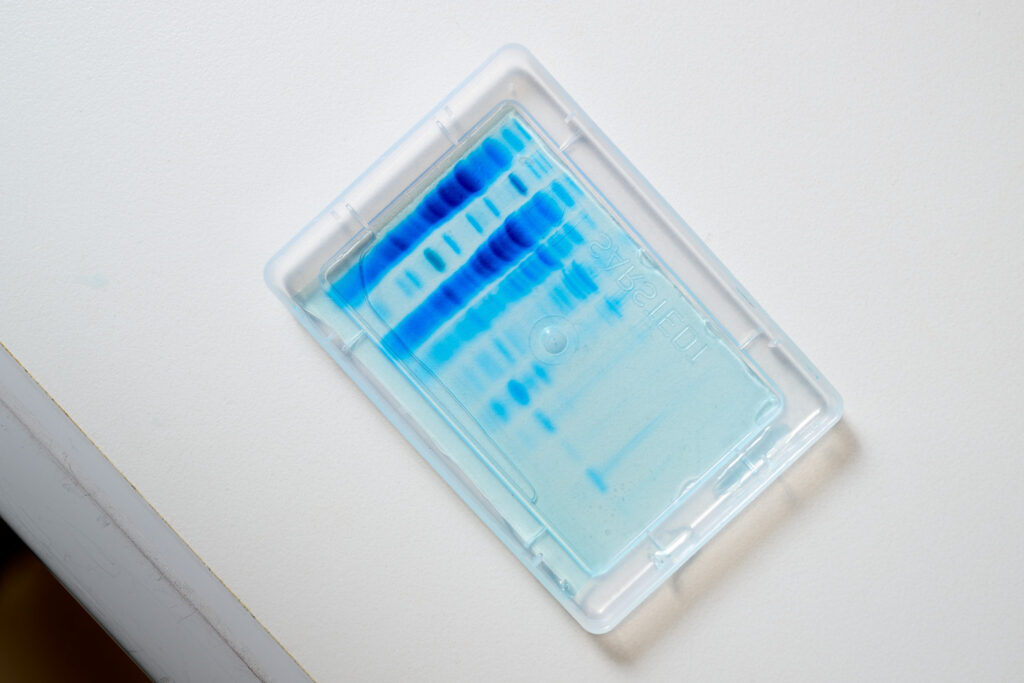
24. How do you keep your head clear when you are stressed?
Listening to music, singing and dancing. All at the same time.
25. What is your favourite German word? Why?
My favourite German word is Weltschmerz. The way I feel this word is that it captures a complex and multilayered feeling. It is the intellectual and emotional state of an individual tormented by unrighteous, disastrous, and inequitable events. If one is productively consumed by Weltschmerz that means that one has the ability to empathise and do what is right.
26. What makes you most happy about the world?
Family, friends and relationships. Resilience, ability to recover and kindness.
27. What or who inspired you to become a researcher/biochemist?
I don’t have any particular idol. My personal heroes have always been people who are passionate about their work and who treat other people with kindness and respect. When I discovered that I enjoyed reading and thinking about proteins the most, I decided to study biochemistry.
28. Which of your traits bothers you the most in your daily work? And which of your traits help you the most in your daily work?
Not exactly traits but I am ‘allergic’ to administration and endless email correspondence.
The most helpful traits? Resilience, being intuitive, compassionate, persistent, and flexible.
29. What worries you most about the world?
Lack of awareness that there is no planet B. We all collectively act as if we are not aware of this fact.
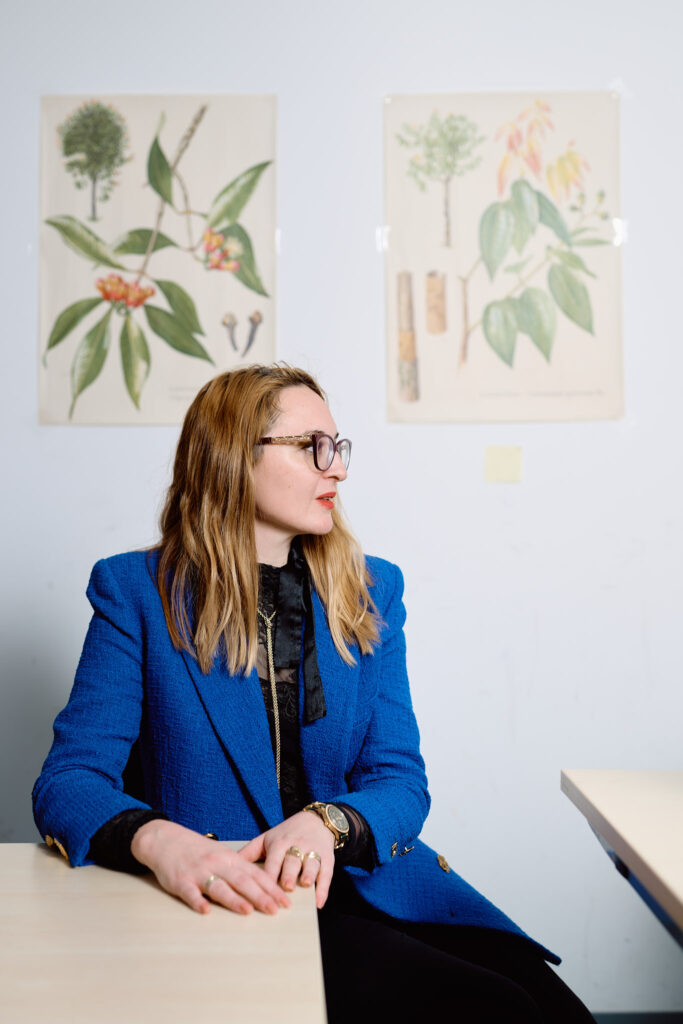
30. If you could travel in time: in which epoch and at which discovery or event would you have liked to have been there?
It’s not about the epoch, it’s about the people. I would probably like to travel back in time to the first Solvay conference held in Brussels in 1911. This event is considered a turning point in science when transition of classical physics to quantum theory took place. A few years ago, I had a coffee at the Metropole Hotel in Brussels, where the first conference was held, imagining what the event was like, the talks they gave and what the coffee breaks and small talks were like.
31. What is your favourite place to relax from research?
My grandfather’s house in Lika region in Croatia. This is where my roots are.
32. What surprised you most about the University of Münster?
The WiRe Fellowship that allows an easier combination of family obligations and career aspirations for female scientists through the combination of on-site and remote research. I’m not sure how many similar postdoctoral appointments in a hybrid format there are, and in this sense, the University of Münster is a true leader and represents the avant-garde in providing support to female early-career researchers.
33. Your favourite TV series?
Only Fools and Horses. Timeless, a funny and heartwarming sitcom that I could watch repeatedly. I love the casting, spontaneous improvisations on a script and set that made this sitcom perfect.



